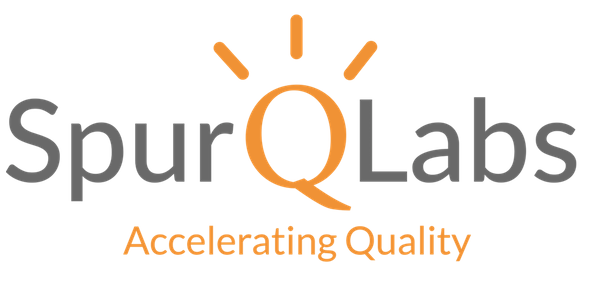Right test Automation Tools – Automation Testing is becoming increasingly essential for accelerating release cycles and enhancing software quality. While it can save significant time and effort, the success of automation largely depends on choosing the right tool for the job. Rather than opting for the most popular option, it’s crucial to select a tool that aligns with your specific project needs.
Here’s a simple breakdown of the key factors to consider for choosing the Right Test Automation Tools.
Start by asking: What does my project really need?
1. Understand Your Project Requirements

Before anything, get a clear picture of what your project needs in terms of testing.
- Application Type: Are you testing a web, mobile, or desktop app? Some tools focus on one, while others handle multiple platforms.
- For example:
- Web apps may also need cross-browser testing or UI/Usability checks.
- Mobile apps might require testing across Android, iOS, and tablets; therefore, Will you use real devices or emulators?
- For example:
Type & Level of Testing: What kind of testing does your project demand — whether it’s functional, non-functional, regression, or integration?
- Functional Testing: Make sure the tool supports the platforms and technologies your app uses (e.g., APIs, databases).
- Non-Functional Testing: You’ll also want a tool that can handle Performance testing , Load testing and Security testing.
- Regression Testing: Consider a tool that simplifies updating test scripts as the application evolves.
- Technology Stack: The tool should therefore work well with the technology your application is built on.
- Example:
- Furthermore, ensure it supports programming languages your team knows (Java, Python, C#) and integrates smoothly with your CI/CD pipelines (Jenkins, GitLab).
- If your app uses Angular, Protractor might be a good fit.
- Example:
2. Mind Your Budget

Automation tools come with various costs, and it’s important to budget wisely.
- Learning Time: If the tool is easy to learn, your team can become productive faster, saving both time and money.
- Efficiency: Tools that make it quick and simple to create and maintain test cases will save resources in the long run.
- Human Resources: Therefore, Consider using AI-based or low-code/no-code tools that reduce the need for manual intervention and specialized skills, which can lower costs.
- Maintenance Costs: Furthermore, don’t forget the long-term factor in costs for upgrades, support, and maintenance throughout the project.
- Open-Source vs Paid: Open-source tools can help reduce costs upfront, while paid tools often offer advanced features, support, and flexible pricing. Some offer free trials or team subscriptions to give you a chance to evaluate before committing.
3. Consider Your Team’s Skill Set

The tool you choose should match your team’s skill set.
- Beginner Team: If your team is new to automation, opt for low-code or codeless tools that are user-friendly and quick to adopt.
- Advanced Team: If your team is well experienced, go for a tool with more customization options to take full advantage of their expertise.
The ease of adoption directly impacts your team’s productivity and the overall success of your automation efforts.
4. Scalability and Maintenance

Automation isn’t a one-time activity. Over time, your test cases will need updates.
- Test Case Maintenance: As your app evolves, old test cases may no longer find bugs (“pesticide paradox”). Look for tools that make it easy to update and maintain test scripts.
- Self-Healing Abilities: Some tools can automatically adapt to minor changes in your application, reducing the need for constant script updates.
- Customization: Choose tools that allow users to customize their tests based on their skills and project needs, so both beginners and experts can work effectively.
5. Integration with Test Case Management, Defect Management and Version Control Systems

The right tool should integrate smoothly with your Test Case Management, defect management and version control systems.
- Test Case Management: Ensure the tools support the integration with Test Case management tools to make sure the tests are marked as automated, generate test execution reports etc.
- Defect Reporting: Ensure the tool can easily track and report bugs.
- Version Control: Some tools let you track changes over time, so you can compare previous and current versions. This can be crucial for debugging and maintaining test integrity.
6. Collaboration and Communication

Collaboration between teams is key for successful automation. Look for tools with features that improve teamwork.
- Automated Notifications: Some tools offer features that notify team members of updates or executions in real time, keeping everyone on same page.
- Cross-Department Collaboration: Tools with shared dashboards or collaborative features can improve team coordination.
7. Robust Reporting Mechanism

Detailed reports are a must! You’ll want to quickly identify problem areas and track progress.
- Step-by-Step Logs: Look for tools that provide step-by-step logs, screenshots, video recordings, and error logs.
- Graphical visualizations: Visual reports provide an instant overview of testing results, helping you identify issues faster.
8. AI Integration

AI-driven tools can significantly enhance automation by.
- Auto-generating code: Reducing the time needed for script creation.
- Improving test coverage: By generating various combinations of test data and scenarios.
- Self-healing: Automatically adjust test scripts when application elements change, reducing maintenance efforts.
Conclusion
Selecting the right automation tool is more than just picking the most popular option. By understanding your project requirements, budget, team skills, and long-term scalability needs, you can make an informed choice. The right tool will not only fit your technical needs but also help your team work more efficiently and deliver higher-quality products faster.
Click here to read more blogs like this.
1
Manisha is a Lead SDET at SpurQLabs with overall experience of 3.5 years in UI Test Automation, Mobile test Automation, Manual testing, database testing, API testing and CI/CD. Proven expertise in creating and maintaining test automation frameworks for Mobile, Web and Rest API in Java, C#, Python and JavaScript.

